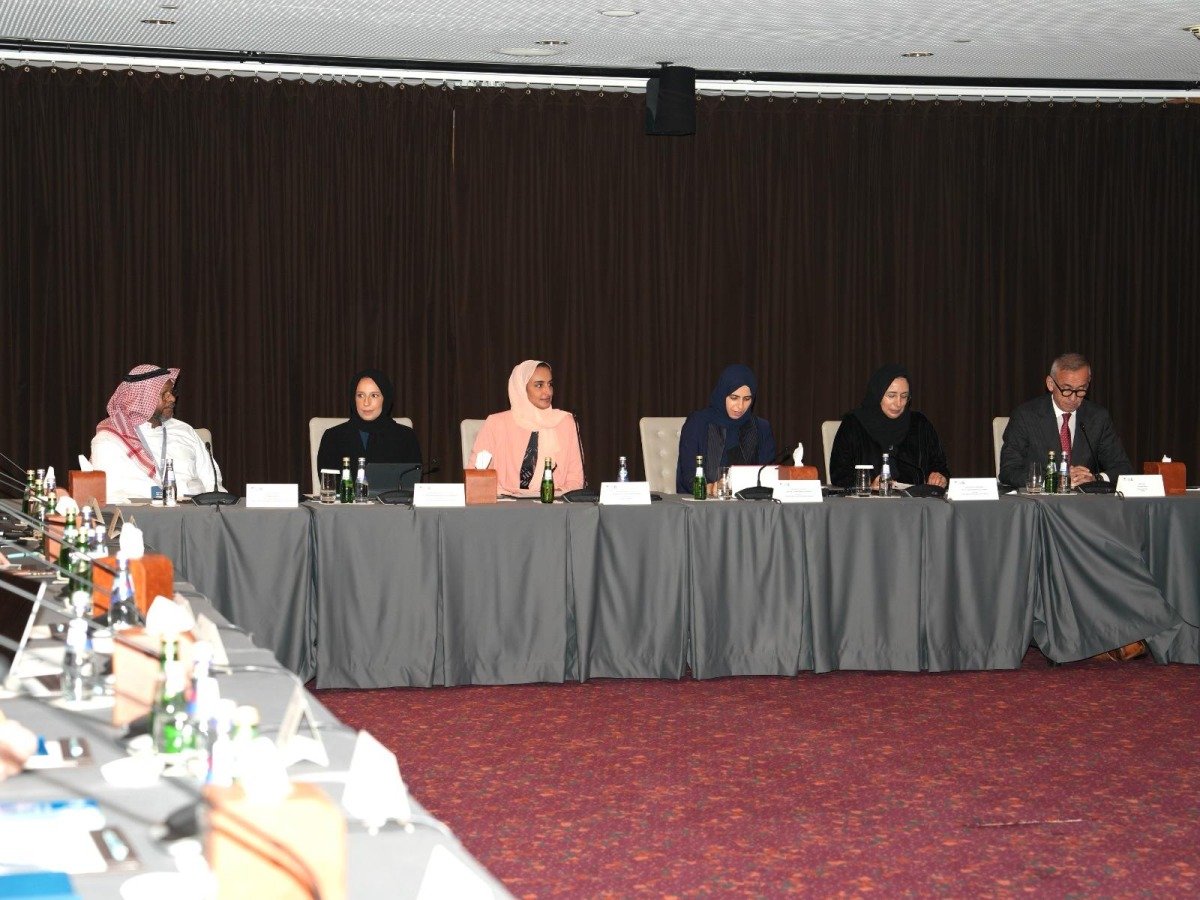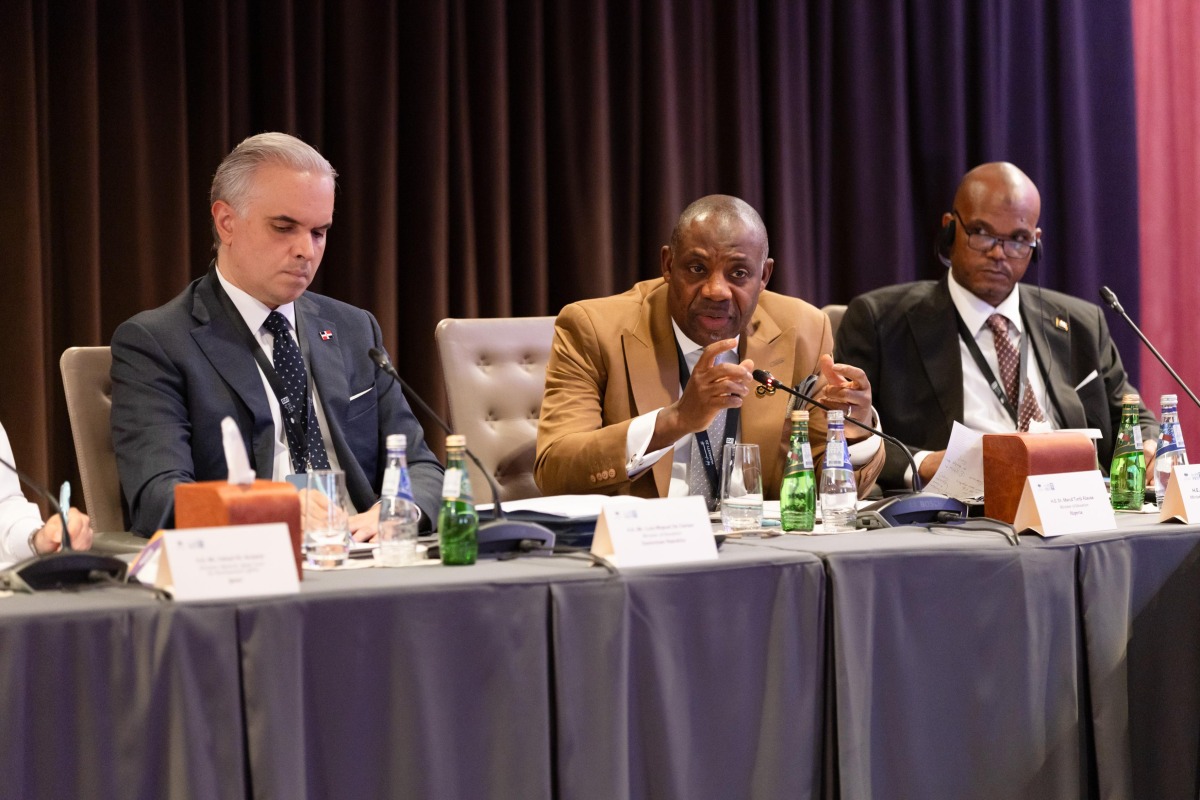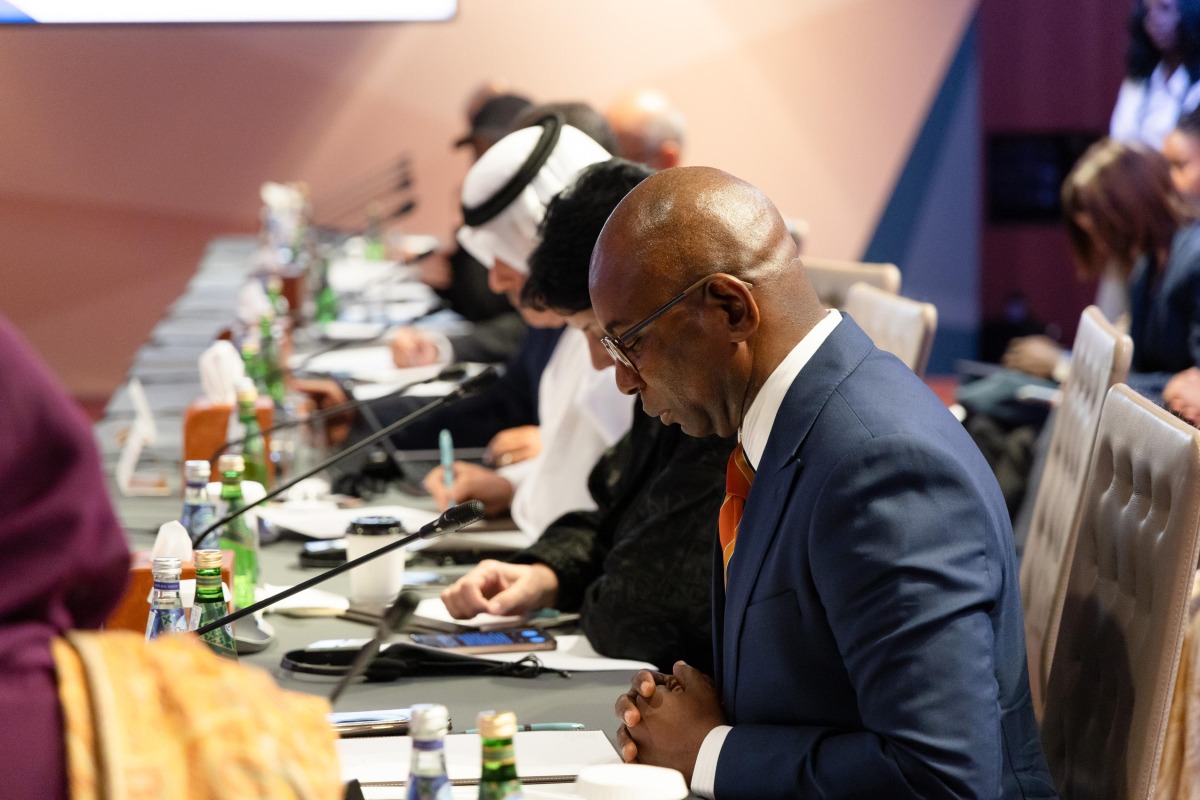HE Sheikha Hind bint Hamad Al Thani convenes a unified national effort to make addressing child and adolescent digital addiction a national priority
Published: 24 Nov 2025 - 10:46 pm | Last Updated: 24 Nov 2025 - 10:59 pm
Doha, Qatar: Her Highness Sheikha Moza bint Nasser, Chairperson of Qatar Foundation, attended a WISE 12 Summit high-level roundtable, where the formation of a national taskforce was announced.
The roundtable, which was chaired by Her Excellency Sheikha Hind bint Hamad Al Thani, Vice Chairperson of Qatar Foundation, discussed the taskforce which is designed to unify Qatar’s efforts to safeguard the digital wellbeing of the nation’s youth.

Bringing together leaders from multiple sectors – education, health, youth, sports, and culture, and grounded in scientific evidence – the discussion reinforced a nationwide commitment to responding to the risks that the digital age can pose for children and young people, enabling them to thrive and technology to be harnessed for human development, wellbeing, and social benefit.
The discussion held during a roundtable session on the opening day of WISE 12 – the biennial summit hosted by Qatar Foundation’s global education initiative WISE, which is exploring how education can remain human-centered in an AI-influenced world – positions child and adolescent digital safety as a national priority for advancing youth wellbeing within and beyond Qatar.
Chairing the session, Her Excellency Sheikha Hind said: “For thousands of years, childhood unfolded in the physical world. In the past 15 years, a new ecosystem has emerged. What was once a tool for communication has become a habitat in which most of our children now live.

“The data is clear: as digital hours rise, attention, sleep, and emotional regulation fall. But beyond data, something deeper is at stake: children once learned by doing, by watching, trying, failing, and from their teachers, family, and community. Now smartphones and AI promise instant mastery without the labor of learning.
“What we need is a shared response, one that is truly holistic, interdisciplinary, and strategic. Technology is neither merely a tool nor an enemy; it is both a burden and a blessing. We must ask: are we shaping technology, or is it shaping us, and at what cost?
“Qatar has a rich history of balancing innovation without compromising tradition. Just as our communities have historically drawn on wisdom to adapt to change, we continue this legacy while combining scientific insight, educational innovation, and family engagement to shape solutions for the digital age.”
Discussions during the session focused on how Qatar’s digital ecosystem can balance the possibilities offered by technology with ethical and responsible use to preserve the health and wellbeing of the nation’s youth – from policies that reduce the use of phones during school hours, to promoting family and community engagement and enhancing digital literacy.
Speaking during the roundtable, Her Excellency Lolwah bint Rashid bin Mohammed Al Khater, Minister of Education and Higher Education, emphasized the critical role of the private sector and parents, alongside governments, in safeguarding child and adolescent digital wellbeing, and the need for a “multisectoral approach” to address the issue.
“According to international research, students between the ages of eight and 18 spend an average of 7.5-8 hours per day on digital devices,” she said. “This is equivalent to school hours, which means that no matter what measures are put in place within schools, without enough governance of their use of technology outside of school hours, the outcomes will be the same”.
“With technology, there is more uncertainty than certainty, and there are more questions than answers, even from experts. This tells us a great deal about the challenges we face in terms of the technology that is unfolding.”
Her Excellency Buthaina bint Ali Al Jabr Al Nuaimi, Minister of Social Development and Family, highlighted the importance of the family and the comprehensive approach that will be adopted by the Digital Safety Committee for Children and Youth, saying: “This challenge is not limited to the State of Qatar, but one faced by countries around the world.

“The Council of Ministers has approved the decision to establish the Digital Safety Committee for Children and Youth, which will contribute to safeguarding children and youth from the challenges posed by technology. From this standpoint, our approach will be inclusive and multisectoral.
“We look forward to the outcomes of today’s dialogue – with insights from Qatar Foundation and the participating entities – contributing to advancing these discussions and guiding the course of our collective efforts.”
Also speaking during the session, HE Dr. Hanan Mohamed Al Kuwari, former Minister of Public Health, said: “Digital environments are now among the most powerful determinants of young people’s mental health.
“It is crucial that we empower young people to thrive in the digital age so that they can harness all the positive contributions of technology toward their development and growth. However, recent WHO and UNICEF studies give us a clear warning of the possible risks if countries do not act to protect the mental health of their youth.
“Digital tools provide children and adolescents with important opportunities for learning and social connection. At the same time, a significant portion of young people experience patterns of use that they do not control.”
The discussion detailed evidence-based insights on the impacts of excessive digital use from experts in fields including neuroscience, healthcare, and education, as experts from Hamad bin Khalifa University, University of North Carolina, and the University of Cambridge presented their research findings, while Qatar Foundation presented evidence from successful pilot projects within its K-12 schools in reducing digital technology.
Faith-based perspectives from The Vatican and Yaqeen Institute for Islamic Research were offered as a means of ensuring holistic development and the role of family in providing the values and grounding to develop a sense of belonging and purpose.
Technology providers and regulators from the Ministry of Communications and Information Technology, the National Cybersecurity Agency, MADA, and Ooredoo also attended to ensure a collaborative approach bringing together the public and private sectors, before focusing on pathways for implementing child digital wellbeing policies and measures.
The Royal Foundation, everyone.AI – an initiative of the Paris Peace Forum – and Sir Mo Farah CBE welcomed Qatar’s leadership in convening, highlighting the need for international partnerships that can accelerate action on this important issue.




